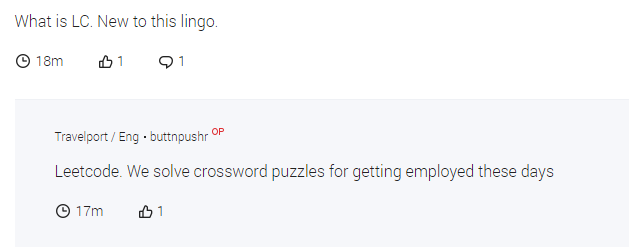The reason for writing this guide was this publication with a list of useful resources, which I accidentally stumbled upon a few days ago. Together with the work of the user Sergunka , who opened the veil of the hiring process back in 2015, the above information could be a good starting point. In theory.
Unfortunately, in practice, such a job search process often ends in failure. Job listing sites are one of the most inefficient ways, at least in the US.
Under the cut, I will share practical recommendations that will help to “tweak” the system and significantly increase the chances of receiving offers from top companies in a short time.

Important notice! In my opinion, education in the States / Europe is one of the easiest and most effective ways to get a job, especially in IT. Details on how to do this for free can be found in my very first article and in an excellent description from Roman .
I will only add that in addition to Fulbright, there is a similar opportunity with direct admission to the university, which differs little from the procedure described by links. If you still have the opportunity, quit reading this article and follow the links above. This is a great shortcut.
Well, now to the point! MOST positions in FAANG are closed using referral recommendations. This is when a company employee recommends you to a hiring manager or at least a recruiter.
For many, this is not only a great opportunity to circumvent tough pre-screening programs that are capable of killing even top specialists, but also a significant time saving, which helps to avoid long calls and all kinds of tasks from recruiters, which in 99% of cases DO NOT decide (and just pass on your resume to the hiring manager).
Moreover, according to numerous studies and insights, “referred” specialists receive more generous offers in a shorter time. In corporate America, networking is paramount. And we will try to take advantage of this.
In general terms, the process looks like this :
we are looking for a position - we are looking for contact from the company - we are preparing a killer resume / cover letter for a specific position - we are submitting documents - we are going through a series of interviews.
We are looking for a position
Everything is simple here. Surf off company sites / Linkedin / Indeed ( these resources are really useful here)
We are looking for a contact from the company
Ideal option: to be in the city in order to achieve the opportunity to meet a person from your department (or better, a manager of a higher hierarchy than your position).
This is one of the reasons education in the States can help a lot (at least you will be in the country for a long time to get the opportunity to hold meetings). Particularly desperate guys, like my friend, who ended up in Amazon, fly on a tour visa and try to get to know as many professionals as possible.
If there is no opportunity to hold a personal meeting (how to arrange it below), there are at least two smart resources.
1. Blind - an anonymous professional network where you can get advice on going through interviews, find out information about working in a particular company, discuss the offer that you received after the interview and ask for referral.
I recommend installing the application, joining profile chats (dedicated to specific companies) and learning a few abbreviations that are used at every step:
- TC - total compensation. Includes your salary (salary), signing bonus (hiring bonus ), annual bonus (annual bonus) and equity (share in the company).
- LC - leetcode, which will be discussed below.

- There is also CTCI - CRACKING the CODING INTERVIEW (similar to the previous resource)
- YOE - years of experience
- LP - leadership principles, usually refers to work in Amazon, for which you need to work out a lot of case studies for different types of LP
- STAR - Situation, Task, Action, Results, approach to solving many case studies during interviews.
2. Rooftopslushie.com - a great resource where you can ask for feedback on a resume, a recommendation to the company and just advice. For money. At the same time, during registration, access to a huge number of questions and answers from other guys is opened. It's free.
These are gorgeous resources that are practically unknown in the CIS, but which are very worth getting to know if you plan to move.
We are looking for a contact from the company (FOR A PERSONAL MEETING)
If you still find the opportunity to meet a person from the company, there is a very good approach that I recommend to students who learn English with us.
If this is not possible, feel free to skip this section.
- We are looking for a person on Linkedin who is located one / two positions higher (if you apply for Software Developer, you are interested in people from Senior Software Developer, ideally department managers)
- We write a person an email / Linkedin email with the subject Quick Question: xxx (this really works awesomely). In the body of the letter, add information about his background and offer to meet for a coffee break to discuss an interesting issue.
- At the end of the meeting, we ask the person the KEY question: “What is the biggest challenge your team is facing right now?” We are trying to find out the maximum number of details
- We do homework and try to offer an interesting solution in a few days. Along the way, please refer to position X
It looks complicated and scary, but works flawlessly in practice, plus it’s great to pump soft-skills (which many programmers hate).
Preparing a killer resume / cover letter for a specific position
This should be done along with the previous points. I highly recommend using a paid feedback on the same Rooftopslushie.com to create the perfect resume. Many guys from the CIS are doing it completely wrong.
From myself I will give two simple but important tips:
- ALWAYS add to the CV Summary / Headline in which the interest in a SPECIFIC position in a SPECIFIC company is clearly marked. Avoid "general" phrases. Resume should be maximally tailored to the desired position.
- Support “achievements” with specific numbers. In any field of activity you can find numbers. Numbers are much better than common phrases.
We are going through a series of interviews
If you responsibly approached the previous paragraphs, the likelihood of getting an interview with the desired company has increased significantly (compared to applying for job search sites, including Linkedin).
It remains to pass the last barrier - a series of interviews. Initial interviews will most likely be over the phone / skype. Final (in most cases, but there are exceptions) - in place. However, many companies pay the cost of a flight / hotel.
At this stage, you will need the help of future colleagues from the above applications more than ever. Here Glassdoor and numerous question banks are very useful.
Gather the maximum amount of information about the types of questions, features of work and SALARY on similar positions.
To prepare for a technical interview, VERY help:
a) leetcode.com
b) www.crackingthecodinginterview.com
Each large company has its own characteristics. For example, here is a great article about the aforementioned Amazon Leadership Principles.
It all depends on your “homework”. And yes, one last thing: never rush into a salary. Try to find out “range” from recruiters before giving your personal preferences.
Pay attention to the cost of living in a particular region. 100 thousand a year in the Valley is VERY small. 100 thousand a year in some Austin in Texas - an excellent sn. I recommend using a calculator from Banckrate to compare offers from different regions and get a good idea of the cost of living.
If you liked the article and would like to receive more useful materials, subscribe to our blog.
And if you are not yet sure of the level of your language, join our marathon for learning English !
This is NOT a magic pill that will allow you to calmly speak in a few days, but a technological solution with which you will get a solid foundation in the shortest possible time.